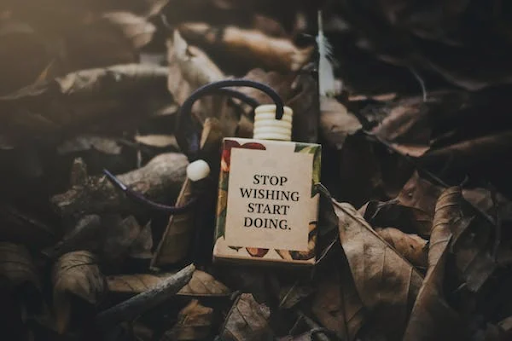10 Small Things That Will Reduce Anxiety and Enhance Your Mood
Anxiety is a natural part of our lives. We have all felt anxious at some point, be it before a big exam, first day of school, job interview or simply riding a roller coaster. But as anxiety becomes a constant and overwhelming feature in your life, this may be an indicator of an anxiety disorder.
According to the National Institute of Mental Health, anxiety disorders are the most common mental illness in the U.S., affecting more than 40 million adults. If you feel that your feelings of worry and nervousness have taken over your life, here are 10 small everyday habits that can reduce your anxiety and improve your overall mood.
Anxiety is a common and treatable disorder. It's the most common psychiatric condition in the United States, affecting 18 percent of the population each year.
Here are some of the small things you can do to reduce anxiety and enhance your mood:
1. Breathe
Feeling stressed out? Anxiety can feel overwhelming, but there are some easy techniques to make it go away.
One of the easiest ways is by breathing.
You breathe every day, but you may not have noticed that your breathing changes moods and emotions. Shallow breaths can cause feelings of anxiety or panic, while long deep breaths can help lower stress levels in the body.
When you breathe deeply, it sends a message to your brain to calm down and relax. The brain then sends this message to your body. Those things that happen when you are stressed, such as increased heart rate, fast breathing, and high blood pressure, all decrease as you breathe deeply to relax.
Deep abdominal breathing encourages full oxygen exchange — that is, the beneficial trade of incoming oxygen for outgoing carbon dioxide. Not surprisingly, it can slow the heartbeat and lower or stabilize blood pressure.
2. Meditate
Meditation can be a powerful tool to relax the body and bring you into the present moment. The practice of meditation is a great way to enhance your mood and reduce anxiety, especially if you do it daily.
Some people try to relieve their anxiety by smoking cigarettes or drinking alcohol — this doesn't help reduce anxiety in the long run, though it can make you feel better for a short time. Other people turn to prescription drugs, which may be helpful for some people but come with serious side effects like addiction and withdrawal symptoms.
Meditation offers another option for relieving anxiety in a healthy way.
Below are some of the benefits of meditation:
- Improves your concentration
- Increases relaxation
- Improves your mood
- Helps reduce pain
You don't need any special equipment or a quiet place to meditate. Here's how to get started:
To begin, find a quiet place where you can sit comfortably without distractions. Close your eyes and focus on breathing in and out slowly. Imagine yourself in a peaceful location, such as at the beach or in a field of flowers. Focus on that image for about 20 minutes before opening your eyes and returning to reality.
After a few weeks, you may find that meditation helps you feel less anxious, more calm and better able to cope with whatever life throws your way.
3. Write down your worries
Writing down your worries can reduce anxiety and enhance your mood.
Anxiety and worry is something we all experience at some time or another. It is a natural emotion that I'm sure we would not want to be without. Worry is just the brain's way of raising our awareness of potential problems, so they don't sneak up on us. But when worry becomes excessive, or feels out of control, it can cause stress and anxiety. Often people find that once they start worrying about one thing, it is easy for their mind to slip into a pattern of worrying about other things too.
So how do you break this cycle? One method I have found useful with clients is called the “worry time” technique. This involves setting aside a specific time slot each day to write down your worries. When worries pop into your mind during the day, enter them in your diary for your worry time slot. When your worry time arrives, take out your diary and get ready for some problem solving.
No matter what type of journaling you do, it helps to get things out in the open. Many people find it easier to express their feelings when they're writing on a page rather than saying them aloud. It can also help to examine your thoughts and feelings so you can work through them.
In the digital age, there are plenty of online journals that can help you get started. There's 750 Words (a site where you write 750 words every day), Penzu (a website where you can create private or public journals), and Day One (an app where you can log anything from photos to audio).
4. Stop worrying about things you can't control
When you're anxious, you feel like you have to control everything around you. You worry that something bad may happen and if you don't worry enough, it will. This is because anxiety is a primitive fear response that prepares us to fight or flee when we're in danger.
Sadly, this fear response is not always accurate and can be triggered by things that aren't actually dangerous. When it is triggered, it produces a cascade of stress hormones like cortisol and adrenaline that affect your mind and body.
Worrying about the past or the future can make you feel helpless, because there's nothing you can do to change those things. Not only that, but many of the things we worry about never even happen.
The good news is there are things you can do to control your worrying and reduce your anxiety so you can enjoy your life more.
5. Exercise regularly
Regular exercise is an excellent way to boost your mood and get in shape.
Exercise can help treat depression or make it less likely. It boosts feel-good chemicals called endorphins. It also helps you sleep better, which is important because people with depression often have trouble sleeping. It also gives you a break from your day, which might be stressful. And it gets you around other people who could support you and give you a mental boost.
Exercise can cause short-term anxiety that goes away when you're done working out. But studies have shown that regular exercise can help reduce the symptoms of anxiety and prevent them from coming back. Exercise might also help keep anxiety from coming back once it's gone.
Exercise affects the body in many ways. It uses up glucose, frees fatty acids into the blood, increases heart rate, changes breathing patterns, and causes muscles to contract. This may be why it can improve mood for some people.
It’s not clear why exercise helps depression and anxiety. But research shows that physical movement seems to affect many parts of the brain at once, including areas involved in mood control and thinking (cognition).
6. Get enough sleep
Getting enough sleep is not only important for your physical health and appearance; it is also important for your mental health. In fact, getting enough sleep can reduce anxiety and enhance your mood.
In addition to improving mood and reducing anxiety, a full night's sleep will also increase your ability to think clearly and creatively.
Getting enough sleep can also help improve memory and learning.
Although the amount of sleep needed varies from person to person, most people need between seven and nine hours of sleep each night in order to function properly the next day. When you don't get enough sleep, it shows up in many ways — from feeling irritable or cranky to experiencing difficulty concentrating or remembering things.
One of the most dangerous aspects of not getting enough sleep is that it can lead to depression. In fact, insomnia is one of the most common symptoms associated with depression and other mood disorders like bipolar disorder.
7. Listen to music
Listening to music is a great way to relax, but did you know it can also help you manage anxiety and boost your mood when you're feeling low?
Research shows that listening to music can reduce anxiety, blood pressure, and pain as well as improve sleep quality, mood, mental alertness, and memory. Music is beneficial to our health because it helps the body produce natural painkillers and protect the immune system. For example, music releases dopamine, a brain chemical that's triggered by rewards such as food, sex and social interaction.
Listening to music may be just as powerful as a drug. One study found that listening to relaxing music reduced anxiety in patients before surgery more than medication could.
The key is to find the right music for your situation and goals. Some people find classical or instrumental music very relaxing while others enjoy heavy metal or punk rock. Music with a fast tempo can make you feel more alert and concentrate better. But if you're trying to go to sleep or relax after work, choose slower tunes instead.
8. Connect with others
Social relationships can have a major impact on your mental health. It’s not just the number of friends you have, and it’s not just the kind of people you hang out with. It’s the quality of your close relationships that matters.
Strong social relationships are associated with better health. Social support — having someone to turn to in times of need or crisis to talk about your problems, ask for help, or just vent — is a major factor in psychological well-being and overall health.
In fact, social support has been linked to lower levels of anxiety and depression, better sleep, greater longevity, higher self esteem, and faster recovery from trauma or illness. Social support also increases our sense of belonging and purpose, which are key factors in happiness.
9. Eat a healthy diet
Eating a balanced diet is crucial for everyone, but it's especially important for those with anxiety. Eating a balanced diet will help you get the nutrients your body needs to function at its best — including your brain.
Processed foods and high-sugar foods weaken your immune system and make you more susceptible to stress and anxiety.
There is some research that suggests certain types of food might help relieve anxiety symptoms. One study found that berries might reduce anxiety, while another found that yogurt may improve both anxiety symptoms and mood.
Some people say they find comfort in eating chocolate. This may be because chocolate contains tryptophan, which is an amino acid that helps form serotonin in the body. Serotonin is a neurotransmitter and hormone that regulates mood, sleep, appetite and other bodily functions.
Unfortunately, this doesn't mean that eating chocolate will help you feel better. Eating too much sugar can actually make you feel worse over time because sugar can cause a spike in blood sugar levels followed by a crash later on.
The bottom line is to avoid processed foods or foods with lots of added sugar (like candy or soda) if you're feeling anxious or stressed out.
10. Cut back on alcohol and caffeine
One of the best things you can do to help your mood and anxiety is to cut back on alcohol and caffeine. Alcohol and caffeine are stimulants that can cause you to feel anxious, especially if you drink a lot of either.
Alcohol is a depressant, but it can actually cause anxiety at first. If you've ever felt jittery or agitated after drinking too much coffee or soda, you know what this feels like. Caffeine also increases heart rate and blood pressure, which can make you feel more stressed or anxious.
Another good rule of thumb for decreasing anxiety is to stick with water as your main beverage instead of soda or juice. Water helps flush out toxins in your body that can make you feel more anxious than usual.
If you are going to drink alcohol, limit yourself to one or two drinks per day for men, or one normal-sized glass for women. It's better to avoid alcohol altogether if possible.
If you're feeling anxious, try eating some healthy foods instead of relying on alcohol or caffeine to get through the day. Eating healthy foods will give you more energy while also helping reduce any feelings of anxiety or depression that might be keeping you awake at night.
Small changes in our daily habits don't seem like they'd make much difference, but collectively they can add up to big differences over time. Just pay attention to how you're feeling and look for small ways that you can make tweaks to your daily life.





